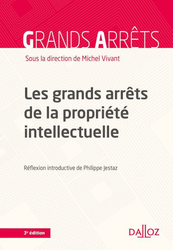June 3, 2021
Thesaurus : Doctrine
Sept. 30, 2020
Teachings : Generall Regulatory law

Résumé de la leçon : Le Droit de la Régulation a eu beaucoup de mal à trouver sa place dans le système juridique, oscillant entre le Droit de la concurrence et le Droit public. Cette difficulté laisse des traces. Les difficultés à situer le Droit de la régulation dans le système juridique rejoint les difficultés de définition qu'il rencontre. Ces difficultés sont aujourd'hui accrues par les espérances de "Régulation du numérique", avatar des réflexions sur les désirs de "Régulation de la mondialisation", certains estimant qu'il faut construire une concurrence effective dans cet espace-là, tandis que d'autres affirment que la solution est une reprise en main des Etats. Trois définitions du terme "Régulation" sont effectivement actuellement actifs dans le Droit de la Régulation.
La première définition du Droit de la Régulation vise la Régulation comme "Voie vers la concurrence". Certains limitent le Droit de la Régulation à cela, la concurrence étant alors comme son "idéal", certes sans cesse retardé, son Graal. Cela conduit à une application technique des règles qui posent la concurrence en principe, et non pas en son exception. Cela implique une méthodologie en matière d'interprétation des textes. La deuxième définition du Droit de la Régulation vise la Régulation comme mécanisme "adjacent" à un système concurrentiel, ce qui conduit à surestimer parfois ce qui ne sont que des insertions adjacents de mécanismes de droit de la concurrence dans des secteurs économiques par principes régulés. Ainsi et pour prendre un exemple les mécanismes techniques constituant des monopoles économiquement naturels sont régulés, tandis que tous les autres comportements ou structures du secteurs relèvent de l'ordinaire, c'est-à-dire du Droit de la concurrence, qui constitue le "Droit commun". La question qui peut alors se poser est le régime juridique des contrats d'accès aux facilités essentielles, lesquelles ne sont pas le seul apanage des réseaux de transport. Les enjeux de qualification sont ici préalables et majeurs. Dans la troisième définition du Droit de la Régulation, la Régulation peut se définir non plus en perspective mais en part égale voire en préférence à la concurrence, lorsque des raisons de durée, confiance, dangers, risques, conduisent à concevoir la Régulation comme un équilibre instable et durable entre le principe de concurrence entre d'autres principes, un équilibre entre le principe de concurrence et d'autres soucis. Il peut s'agir de principes que la technicité même de l'objet requiert mais cela peut être aussi que le regarde qui est porté sur cet objet lui fait porter : par exemple le souci de soin que l'on fait porter au médicament, le souci d'inclusion que l'on fait porter à la banque, le souci de chaleur partagée que l'on fait porter à l'électricité, le souci de civilisation, que l'on fait porter à une entreprise, où que l'on voit à travers un bien marchand mais dans lequel l'on a injecte un "droit de propriété intellectuelle" qui est lui-même un instrument de Régulation. Là encore, la propriété intellectuelle comme instrument de Droit de Régulation est un enjeu majeur, et cela plus que jamais.
Mais qui est légitime à porter ce regard juridiquement créateur : le juge ? l'entreprise (socialement responsable) ? le législateur national ? l'organisme international ? Ou bien, parce que ce sont des "choix", un politique, mis à cette position de choisir par le Peuple ?
___
Consulter les slides servant de support à la Leçon
Accéder au Plan général du Cours de Droit commun de la Régulation.
Se reporter à la présentation générale du Cours de Droit commun de la Régulation.
Consulter le Dictionnaire bilingue du Droit de la Régulation et de la Compliance.
Consulter la Bibliographie générale du Cours de Droit commun de la Régulation
Consulter la bibliographie ci-dessous, spécifique à cette Leçon relative au Droit de la Régulation dans la perspective de la Concurrence
Dec. 18, 2019
Publications

Référence complète : Frison-Roche, M.-A., Le maniement de la propriété intellectuelle comme outil de régulation et de compliance, in Vivant, M. (dir.), Les Grands Arrêts de la propriété intellectuelle, 3ième éd., 2019, 9-11, p.43-53.
This contribution is written in French.
Summary:
Intellectual Property, which comes from the State and is incorporated into public policy, can be designed not to reward the creator a posteriori, but to encourage others to innovate. It is then an Ex Ante regulatory tool, an alternative to the subsidy. If private copying is an exception, it is not in relation to the principle of Competition but in an insertion into a system of incentives, starting from the costs borne by the creator of the first innovation: the rights holder is then protected , not only according to a balance of interests involved but in order not to discourage innovative potentials and the sector itself. (1st decision) ;
The sectoral policy then permeates Intellectual Property, used to regulate a sector, for example that of the drug. While it is true that a laboratory wishing to market a generic drug did not wait for the expiration of the patent for the original drug to do so, it is however not relevant to sanction this anticipation by a few days because the investments made by the holder of the Intellectual Property right have been made profitable by this one and because the public authorities favor the generics in a concern of public health (2nd decision).
Systemic interest prevails and therefore Internet service providers have to bear the costs of blocking access while they are irresponsible because of the texts. This obligation to pay is internalized by Compliance Law because they are in the digital system best able to put an end to the violation of Intellectual Property rights which the ecosystem requires to be effective. (3rd decision).
Read the contribution (in French).
______
Dec. 5, 2019
MAFR TV : MAFR TV - case

Watch the video explaining the content, meaning and scope of the decision made by the Conseil d'Etat (French Council of State) on November 15, 2019, La Banque Postale v. Autorité de contrôle prudentiel et de résolution (ACPR).
The Autorité de contrôle prudentiel et de résolution - ACPR (French Authority of prudential control and resolution) pronounced a very high sanction, representing 7% of La Banque Postale's net annual result. The breach is constituted by the fact of not having prevented the use of the banking technique of the "money order" which was used to escape the freezing of the assets.
The Conseil d'Etat recalls that by nature if the assets are frozen, it is not possible that anyone is able to dispose of these assets. However, by the use of "money orders", persons targeted by asset freezing decisions, tools used in connection with the fight against money laundering and the fight against terrorism, had been able to circulate money to from accounts managed by La Banque Postale, of which they were not customers.
This case was not foreseen at the time when the Bank Postale was sanctioned by the ACPR for not having prevented such a use, the texts forcing it under its obligations of "conformity" to prevent this behavior of violation background gels on the part of his customers, but only that.
This case of a use of a means by a person who is not a customer of the bank was not foreseen at the time when the alleged facts took place and the Bank claims not to be able to be punished since in the repressive matter it is necessary to respect the principle of non-retroactivity of the texts, - in this case texts later supplemented to aim at such an assumption -, the non-retroactivity being a major principle itself related to the principle of the legality of the offenses and the penalties.
We are therefore in the hypothesis of a silence of the texts.
What to decide? Can the Bank be condemned and so heavily or not by the ACPR?
The Bank does not think so.
It acted against this sanction decision firstly because those who used these money orders were not its clients. It has strong reasons to avail itself of this fact, since subsequently the texts needed to be modified to aim not only the use of this technique of money order by those who have a count in the bank and also by those who act with cash through the bank without a count, that is to say without an account holder to look at. Because we are in criminal matters, the restrictive interpretation and non-retroactivity of the text should lead to follow the reasoning of the Bank. But the Conseil d'Etat does not because it considers that implicitly but necessarily even with this subsequent modification of the text, it had aimed that use before.
By this way, the Conseil d'Etatuncil develops a very broad concept of the obligations of banks in their role in the fight against money laundering, and therefore a very repressive point of view, which permeates their "obligation of Compliance". Thus, when the bank also argues that it can not be sanctioned since for it this activity of money order is deficit and that it did not cause harm to its customers even by assuming badly its obligations, theConseil d'Etat stresses that this is not a pertinent perspective since the Compliance obligations falls within the "overriding general interest of protection of public order and public security, to which the freezing of assets legislation responds".
_____
Read the judgment of the Conseil d'Etat ( in French).
Sept. 8, 2019
Blog

I go. In accordance with the European Regulation (GDPR) transposed into French legal system, the site informs that there is possibility for the user to accept or refuse the use of their personal data for the benefit of "partners".
If they continue reading, the user is supposed to accept everything, but they can click to "customize".
I click: there I find two options: "accept everything" or "reject everything". But the "reject all" option is disabled. It is only possible to click on the "accept all" option.
It is stated in a text, which can not be copied, that these "partners" can use my data without my consent and for purposes that they do not have to inform me. But, again, these things I can "refuse everything". Here again the "reject all" mention exists but the fonctionality is not active, while the mention "accept all" is an active fonctionality.
While believing to read a free article on the "right of the trees".
At the end, I do not read this article, since I did not click on the only active buttons: "accept everything".
In exchange for a whimsical article about trees and their rights, or creams to be always young, or celebrities who change spouses, or about so-called tests to find what king or queen you should be if the all recognized all your merits, etc.
Proposed on the digital news feed by unknown sites; in partnership with foreign companies that you will never reach.
And mass-viewed by Internet users who are also told that "consent" is the proven solution for effective protection ....
While these are just panels hastily built by new Potemkins ...
June 26, 2019
Blog

La Chambre commerciale de la Cour de cassation a rendu un arrêt le 17 avril 2019, à propos de la société Créatis.
Le cas est le suivant : par des emprunts divers, un couple se retrouve endetté à hauteur de 66.000 euros. Ne pouvant sans doute faire face à ce que cela représente comme charge mensuelle cumulée, ils recourent à une société qui propose un "prêt de restructuration". Lorsque celui-ci a été conçu, la situation professionnelle familiale, professionnelle et financière du couple lui laisse en disponibilités mensuelles environ 1.800 euros par mois. Un prêt de restructuration consiste à regrouper la totalité des crédits et à allonger dans le temps des remboursements, puisque le remboursement doit s'opérer désormais sur 144 mensualités, c'est-à-dire 12 ans.... Certes, la charge mensuelle tombe ainsi d'environ 2.000 euros pour le couple à environ 780 euros. Ce qui devait arriver arriva : le couple ne fît pas face aux échéances et fût poursuivi.
Pour sa défense, les débiteurs font valeur que leur situation était caractéristique d'un "endettement excessif", puis qu’avec une mensualité de 780 euros et 3 enfants à charge, ils ne pouvaient pas rembourser et que le prêteur devait les mettre en garde sur l'inadéquation entre le prêt de restructuration proposé et leur situation, puisque la mensualité excédait le tiers de leur disponibilité et qu'ils étaient non-avertis. Or, cette mise en garde n'avait pas été faite.
Les juges de première instance donnent raison à l'établissement de crédit qui a agi en exécution forcée mais le jugement est infirmé par la Cour d'appel de Grenoble,qui par un arrêt du 19 septembre 2017, considère à l'inverse qu'il y a eu manquement à l'obligation de conseil, déboute l'établissement de crédit de sa demande en exécution du contrat.
La Cour de cassation casse l'arrêt des juges du fond.
La solution est la suivante : La Chambre commerciale relève qu'un "crédit de restructuration, qui permet la reprise du passif et son rééchelonnement à des conditions moins onéreuses, sans aggraver la situation économique de l'emprunteur, ne crée pas de risque d'endettement nouveau". En conséquence de quoi, la Cour d'appel ne pouvait pas statuer ainsi.
Les enseignements que l'on peut en tirer :
- Cet arrêt très bref n'explicite pas davantage le motif de la cassation.
- Est-ce à dire que toutes ces techniques proposées par des sociétés qui diffusent via tous les médias des offres quasiment miraculeuses et promettant à des personnes non-averties qu'elles sortiront ainsi de leur situation quasiment désespérée par cette solution quasiment magique qu'est le regroupement de crédit ? A lire l'arrêt de la Cour de cassation, c'est ce qu'il faut comprendre.... Le raisonnement est de nature arithmétique : puisque par nature les "conditions sont moins onéreuses", la situation du débiteur n'est pas "aggravée" et il ne peut donc pas y avoir de "risque d'endettement nouveau". Ainsi, s'il n'y a pas d'obligation de mise en garde, c'est parce qu'il n'y a pas de sujet.
- Mais est-ce à dire que la Cour d'appel avait entièrement tort ? Sans doute car s'il est vrai qu'il n'y a pas de risque "d'endettement nouveau", il y a un risque de persistance d'incapacité à rembourser. Les chiffres et la situation des débiteurs qui persisteront à l'avenir (charges familiales, loyer, alimentation requise des enfants, situation de handicap d'un parent) fait que le prêteur sait qu'ils ne pourront pas faire face à ces échéances, même diminués. De cela, ne devaient-ils pas les mettre en garde ?
- S'il l'avait fait, alors les débiteurs, conseillés par les travailleurs sociaux, n'auraient sans doute pas persisté dans une voie présentée comme une solution à leurs problèmes, alors qu'elle demeurait structurellement une impasse. Cela ne vaut pas pour tous les prêts de restructuration, mais dans le cas présent, si. Ils auraient recouru à une commission de surendettement, structure publique mise en place par la Loi et non par le marché pour ce type de situation.
- Il aurait été bénéfique que la Cour de cassation rende un arrêt d'espèce et s'exprime ainsi. Car un esprit de justice va sans doute dans ce sens-là : un principe de validité de ces pratiques de marché, car en principe cela est bénéfique pour le débiteur, sauf si dans certaines situations il passe simplement d'une incapacité de payer les échéances à une autre incapacité de payer les échéances. Et dans ce cas-là, le préteur très particulier que sont les établissements spécialisés dans le regroupement de crédit doit le mettre en garde, n'est-ce pas ?
_____
June 23, 2019
JoRC

The European Banking Union is based on supervision as much as on regulation: it concerns the operators as much as the structures of the sector, because the operators "hold" the sector.
This is why the "regulator - supervisor" holds the operators by the supervision and is close to them.
He meets them officially and in "soft law" relations. This is all the more necessary since the distinction between the Ex Ante and the Ex Post must be nuanced, in that its application is too rigid, in that it involves a long time (first of all the rules, then to apply them, then to notice a gap between rules and behaviors, then to repair it) is not appropriate if the system aims at the prevention of systemic crises, whose source is inside the operators.
This is why the body in charge of solving the difficulties of the systemic banks for the salvation of the systeme meets the banking sector itself, to ensure that they are permanently "resolvable", so that the hypothesis of their resolution never arises. This is the challenge of this system: that it is always ready, for never be applying.
____
In the European Banking Union, the Single Resolution Board (SRB) is in charge of "resolve" the difficulties of European systemic banks in difficulty. It is the public body of the second pillar of the Banking Union. The first pillar is the prevention of these difficulties and the third is the guarantee of deposits. The resolution is therefore more like an Ex Post mechanism.
But in this continuum through these three pillars between the Ex Ante and the Ex Post, the SRB does not wait passively - as would a traditional judge do - that the file of the troubled bank reaches it. Like a supervisor - which brings it closer to the first public in the system (Single Supervisory Board -SSB), which supervises all the banks, it is in direct contact with all the banks, and it approaches the hypothesis of a bank in trouble by a systemic perspective: it is therefore to the entire banking system that the SRB addresses itself.
As such, it organizes meetings, where he is located: in Brussels.
To resolve in Ex Post the difficulties of a bank, it has to present a quality (a little known concept in Bankruptcy Law): "resolvability". How build it? Who build it ? In its very design and in its application, bank by bank.
For the resolution body vis-à-vis all players in the banking and financial sector, it's clear: "Working together" is crucial in building resolvability ".
In the projection that is made, it is affirmed that there can be a successful resolution only if the operator in difficulty is not deprived of access to what makes to stay it alive, that is to say the banking and financial system itself, and more specifically the "Financial Market Infrastructures", for example payment services.
Does the Single Resolution Board expect spontaneous commitments from the FMIs for such a "right of access"? In this case, as the Single Resolution Board says, this right of access corresponds to "critical functions" for a bank, the resolution situation can not justify the closure of the service.
By nature, these crucial operators are entities that report to regulators who oversee them. Who enforces - and immediately - this right of access? When one can think that it is everyone, it risks being nobody .... That is why the resolution body, relaying in this a concern of the Financial Stability Board, underlines that it is necessary to articulate the supervisors, regulators and "resolvers" between them.
_____
To read this program, since it is a proposed program of work for the banking sector, four observations can be made:
1. We are moving more and more towards a general "intermaillage" (which will perhaps replace the absence of a global State, but it is an similar nature because it is always to public authorities that it refers and not to self-regulation);
2. But as there is no political authority to keep these guardians, the entities that articulate all these various public structures, with different functions, located in different countries, acting according to different temporalities, these are the companies themselves that internalize the concern that animates those who built the system: here the prevention of systemic risk. This is the definition of Compliance, which brings back to companies, here more clearly those those which manage the Market Infrastructures, the obligations of Compliance (here the management of systemic risk through the obligation of giving access).
3. Even without a single systemic guard, there is always a recourse. That will be the judge. There are already many, there will probably be more in a system of this type, more and more complex, the articulation of disputes is sometimes called "dialogue". And it is undoubtedly "decisions of principle" that will set the principles common to all of these particular organisms.
4. We then see the emergence of Ex Ante mechanisms for the solidity of the systems, and the solidity of the players in the systems, and then the Ex Post resolution of the difficulties of the actors according to access to the solidity of the infrastructures of these systems, which ultimately depend on judges (throughout the West) facing areas where all of this depends much less on the judge: the rest of the world.
____
Oct. 29, 2018
Thesaurus : Doctrine
Référence complète : Supiot, A., PoÏetique de la justice, in Mélanges pour François Ost, Le Droit malgré tout, 2018.
May 11, 2017
Conferences

Reference : Frison-Roche, M.-A., Le contrat est-il l'instrument optimal de la RSE ? ("Is the Contract the optimal instrument of CSR?") in Trébulle, F.-G. (modérateur), Les instruments de la RSE : le contrat (The instruments of CSR"), cycle of conferences organized by the Cour de cassation (French Civil Supreme Court and the Universities of Paris-Dauphine, Paris VIII and Paris I),Cour de cassation, Paris, 11 mai 2017.
Read the slides (in French) as served as the basis of the conference les slides
Read the program on the Cour de cassation wesite (in French).
Read the program of the whole cycle of conferences in which this conference enters (in French)
Corporate Social Responsibility belongs to Economic Law. It thus enters into its logic of efficiency, leading to apprehend any legal mechanism as an instrument, the contract as the others. This does not mean that everything is only an instrument, on the contrary. Economic Law, when it takes the form of Regulation Law, places the principles in the aims pursued. It is in these principles that it can meet CSR if the goals are the same.
In view of these aims, everything is an instrument. On the scale of goals which are "monumental"
New laws, such as in France in 2016 the Sapin 2 law or in 2017 the law establishing a "duty of vigilance" with uncertain contours, may use the contract only as a vehicle for legal obligations to be performed by the company
But the contract can also be chosen as an instrument by the company in that it pursues the same goals of general interest, becoming global
In this, the contract converges towards what is being constructed: a Compliance Law.
On this notion of "Monumental Goal", see Frison-Roche, M-A., Compliance Law, 2016 ; From Regulation Law to Compliance Law, 2017.
For a whole demonstration, see Frison-Roche, M.-A.,From Regulation Law to Compliance Law, 2017.
On this notion of "global general interest", and maybe of "global public service", see Frison-Roche, M.A., From Regulation Law to Compliance Law, 2017 .
April 21, 2017
Blog

Through the Open Culture website, it is possible to listen to Hayao Miyazaki who, in March 2017, claimed that video games whose drawings are made on Artificial Intelligence basis are "insults to life".
Read below the history, the words that the Master has held, his conception of what is creation and "truly human" work, which is echoed by the definitions given by Alain Supiot, who also reflected on what robots do.
This brings us back to the very notion of "creation" and creative work.
_____
Read below
June 28, 2012
Publications

► Référence complète : M.-A. Frison-Roche, "Le but du droit français de la concurrence, rapport français", in M. Froment, M.-A. Frison-Roche, M. da Costa, T. Vireira da Costat, G. Cerqueira, B. Graeff, T. Martini Vilarino. (dir.), Droit français et droit brésilien. Perspectives nationales et comparées, Bruylant, Bruxelles, 2012, p.833-849.
____
📘lire une présentation générale de l'ouvrage.
____
_____
► Résumé de l'article : Les prolégomènes de l'article cherchent à démontrer que malgré la proximité profonde entre le droit français et le droit brésilien, le droit de la concurrence ne présente pas forcément la même proximité. En effet, en premier lieu, du point de vue sociologique, cette branche du droit nouvelle a été en France plutôt la prolongation d'un art renouvelé d'administrer l'économie tel que les personnes formés à l'ENA peuvent le pratiquer et non pas les juristes, tandis qu'au Brésil, c'est plutôt une influence nord-américaine des milieux académiques des économistes qui se fait sentir. En outre, le droit de la concurrence est aujourd'hui à ce point intégré dans le droit de l'Union européenne que l'on hésite à parler encore de "droit français".
Ainsi, la concurrence est utilisée pour construire un "marché intérieur", unissant des pays naguère en guerre, projet étranger au brésil.
Cela dit, puisqu'il s'agit ici d'en rester au droit français, l'on peut se demander quel en est l'objet, quelles sont les marges de pouvoir de l'Autorité de concurrence, comment diminue-t-on le problème majeur de l'insécurité juridique, quelles sont les forces qui font évoluer ce droit, quelle part y prend la politique industrielle et dans quelle mesure la crise en aurait modifié les buts.
Son premier objet est la loyauté des comportements, son deuxième la garde du libre fonctionnement concurrentiel du marché, son troisième l'intérêt du consommateur, la quatrième, la construction du marché européen.
les autres finalités sont moins nettes. L'on a ainsi du mal à exprimer en quelques mots la finalité du contrôle des concentrations, la place faite à l'innovation ou le souci de la gestion des risques.
Tout ce droit repose sur l'Autorité de concurrence. Ses "marges de discrétion" tiennent non pas tant au cumul de pouvoirs qu'à la pluralité des finalités qu'elle doit satisfaire. A ce titre, elle peut rendre quasiment transparentes les autres branches du droit comme le contrat, le droit du travail ou la propriété intellectuelle. En revanche, la procédure résiste et c'est en la qualifiant de "tribunal" que les juridictions françaises l'ont obligée à a mieux respecter les garanties de procédure des entreprises mises en cause.
La sécurité juridique est apparue récemment comme un thème autonome dans le droit français. Ce droit très complexe essaie d'y satisfaire par la technique des lignes directrices. Dans cette branche du droit, la soft law est ainsi reine, côtoyant un droit des sanctions (hard law) de plus en plus sévère.
Si l'on cherche à trouver dans le droit français de la concurrence des "origines de changement", l'on pourrait dire que c'est avant tout l'Europe, par le Traité de Rome, par des arrêts fondamentaux de la Cour de Justice, comme par l'arrêt Costa, qui a mis le droit de la concurrence au centre du droit économique. Puis, l'ordonnance du 1er décembre 1986 a été un tournant majeur car sans contrainte, le Gouvernement français a choisi d'opter par principe pour le système de liberté des prix, donc le système de marché.
La question de l'articulation entre concurrence et politique industrielle demeure complexe car ne pas considérer la politique industrielle dans une économie et ne faire prévaloir que la concurrence déséquilibre l'organisation de l'économie, mais confier à l'Autorité de concurrence les deux perspectives, sous prétexte d'une "politique de la concurrence", lui offre un excessif pouvoir discrétionnaire.
Enfin, la crise économique a remis en cause le droit de la concurrence car celui-ci n'a pas pour but, voir n'a pas les moyens de contribuer à y faire face, voire à la prévenir. C'est pourquoi pour l'instant, à l'échelle européenne, la Commission européenne procède par voie d'exemption, notamment pour permettre aux États de mettre en place des plans de sauvetage de leur secteur bancaire. Il demeure qu'en la matière, le droit de la concurrence doit laisser place au droit de la régulation.
June 18, 2012
Publications

► Référence complète : M. Froment, M.-A. Frison-Roche, M. da Costa, T. Vireira da Costat, G. Cerqueira, B. Graeff, T. Martini Vilarino. (dir.), Droit français et droit brésilien. Perspectives nationales et comparées, Bruylant, Bruxelles, 2012, 1.088 p.
_____
Lire la quatrième de couverture.
_________